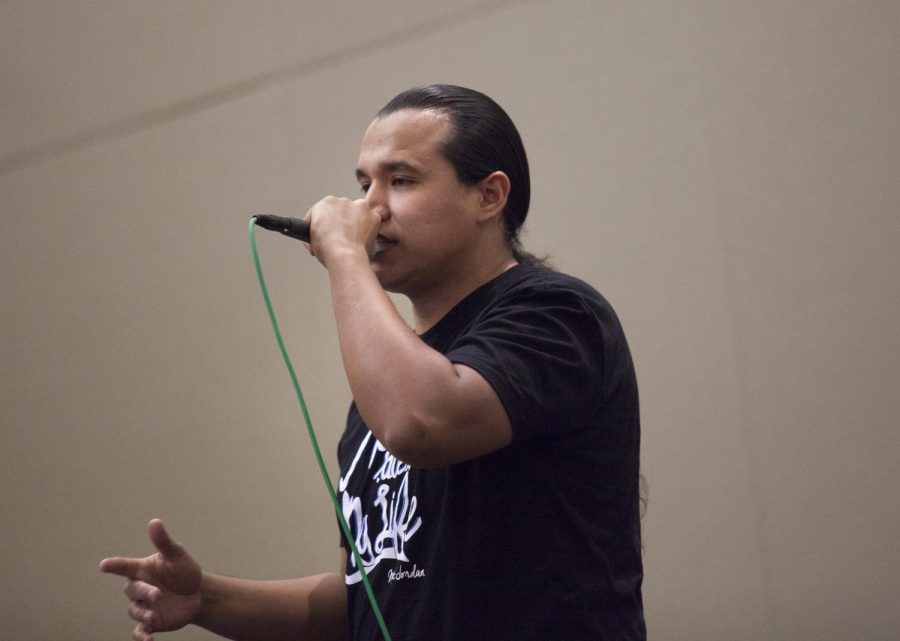Native Voices explores culture, tradition and diversity
October 16, 2018
The Native American Studies Committee at the College of DuPage will host an early celebration for National Native American Heritage month. The four-day symposium will highlight the modern presence of Native American culture. The symposium, titled “Native Voices,” begins on Oct. 22 and ends Oct. 25. It will feature guest musicians, seminars and a movie screening.
The United States Census Bureau estimates around 1,900 people with Native American heritage live in Dupage County out of almost 1,000,000 people. That equals about .002 percent of the local population. No matter how big or small, the college’s committee makes it their mission to educate the greater community and allow the voices of Native Americans to be heard.
“It is a forum to present issues and information while highlighting the [native] people and their accomplishments,” said NASC Chair John Paris. “All four of the presentations are authentic native voices.”
The week will begin with a visit from Tall Paul, an Anishinaabe and Oneida hip-hop performer from Minnesota. His music is a reflection on his upbringing and paints a picture of the struggles facing both indigenous and diverse communities.
“Many oppressed people, including natives, have used this same medium of art to convey their unique experiences,” said Paris.
The next event features Joseph Podlasek, a member of the Lac Courte Oreilles Ojibwa Tribe. As CEO of the Trickster Art Gallery in Schaumburg, he will discuss contemporary Native American art, placing an emphasis on the culture and values of Native veterans.
David Ouellette, COD art history professor and NASC member, will give his own presentation on art, focusing on ancient Mesoamerica and the role of hieroglyphic writing. This visual presentation explores the art of Mayan hieroglyphics in both a historical and modern context.
The final event is a film screening co-sponsored by the Sustainability Film and Discussion Series. “Keep Talking” explores an endangered language and the four Alaskan Native women who struggle to preserve it.
The events are free and open to the public. Faculty, students and community members are encouraged to attend and celebrate the tradition and diversity amongst the Native American population.


















